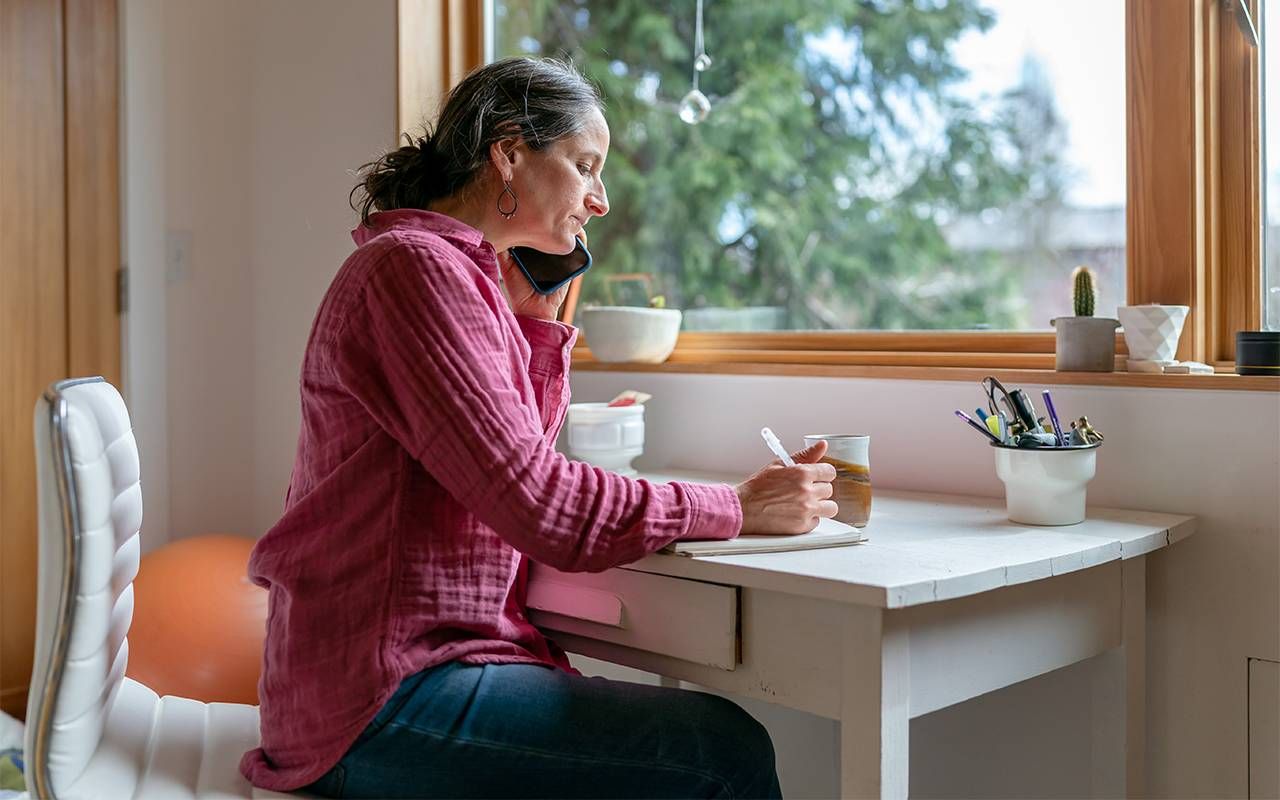What My Brothers Taught Me About Caregiving and Gender Roles
While women can be susceptible to the pull of gender roles, for my brothers, there was no inner struggle
Ours was always a difficult relationship, but in the last two years of my mother's life, the full brunt of her criticism became unbearable. To preserve my emotional well-being, I set firm boundaries. I cut back on calling, limited face-to-face contact, and scheduled visits when at least one of my siblings was present.

Friends who had been primary caregivers schooled me. I would need to buck up and prepare to care for my mother as she became more dependent. I should think about quitting my job – I was close to retirement anyway – so I could attend to her needs.
Then, I would know I had done the right thing when she died.
Why did being a daughter presume the job of primary caregiver would fall to me?
"I may let my brothers handle things," I would tell them. "She gets along with them, and things will go more smoothly if they're in charge."
"But you're the girl, and the oldest," said a friend with three brothers. "And besides, brothers won't step up."
My friends may have wanted to deliver a strong dose of reality, but I bristled. Having relocated following my husband's retirement, I lived nearly three hours away, but the emotional toll would have been too significant even if I had stayed closer.
And why did being a daughter presume the job of primary caregiver would fall to me?
My mother had always been more at ease with my brothers, and her interactions with them were more pleasant than with my sister, the youngest, and me. As she aged, our relationships with her solidified.
A Demanding Mom
When my sister and I discussed the importance of wearing a mask, hiring a contractor to make home repairs, or trying out a cleaning service, she shut us down or collapsed in angry tears at our perceived "bullying."
Eventually, we gave up, leaving those discussions to our brothers. Assisted living was out of the question, as even our brothers could not persuade her to make that move after our father's death in early 2021.
Instead, she demanded they visit weekly for doctor's visits, home maintenance, or, more frequently, emergency room visits for feelings of anxiety, which her physician had repeatedly told her were not, in fact, emergencies.
They would take turns alerting their teams, leave their offices, and drive the 90 minutes, only to sit in the ER for hours. When we spoke on the phone, I could hear the exhaustion in their voices.
I understood. I knew how exasperating she could be. But we were all concerned. A 96-year-old woman, frail, with limited mobility, lonely and deeply depressed, something needed to change.
Leading and Delegating
Unlike my siblings, I was nearing retirement and could work from home. Moving in with my mother, or staying with her for extended periods, would have solved the problem. But my mental well-being was at stake, and I couldn't do it.
They agreed to take on the role of primary caregivers and immediately did what any effective team leader does – they delegated.
My brothers understood. They agreed to take on the role of primary caregivers and immediately did what any effective team leader does – they delegated.
"Can you please help me," read an early Sunday morning text from my brother, who was sitting in the ER with my mother. She felt anxious and demanded he leave a golf tournament.
"She's driving me crazy. We need to look into getting her some help."
"I'm on it," I texted back. "Give me a couple of days." Instead, it took me 48 hours to research and interview care services, sign an agreement with one, and schedule an initial nurse assessment.
Then, I reported back to my brothers and asked for more work. This I could do and wanted to do. I was helping my siblings, easing their frustration and making their lives easier.
Freed from the dictates of gender roles, we could assume the tasks that spoke to our temperaments, circumstances and skills. My brothers took turns attending to my mother, slowly breaking through her resistance to twice-weekly in-home care while my sister called her to check in.
Meanwhile, I managed contracting, scheduling and planning caregiving visits. I spoke regularly with care coordinators, contacted county senior service agencies to get her to and from the doctors, and investigated state motor vehicle requirements for retesting older adults.
I also began exploring senior apartments that would move her closer to my siblings, making it easier for them to stop by frequently. Again, I marveled at our teamwork.
As adults, we had always been friendly, if not incredibly close, but we each shared a strong work ethic, successful business careers, and a no-fuss "get the job done" approach to life.
My brothers were among the best I had ever worked with as team leaders – straightforward, communicative and always ready to brainstorm. Would a senior apartment make sense? Should we revisit assisted living? And gracious, thanking me before moving on to the next job.
Collaboration Instead Of Sacrifice
Research shows that most primary caregivers of older parents are women, and 43% say they get no help from siblings. Women grow frustrated and angry when siblings don't step up, and brothers are often implicated as being the least helpful.
Research shows that most primary caregivers of elderly parents are women, and 43% say they get no help from siblings.
That said, women can be susceptible to the pull of gender roles, including the belief that only we can do the job properly and we can do it all. For my brothers, there was no internal struggle, no talk of sacrifice.
They knew from the outset that caregiving was not a one- or even two-person job, and responsibilities needed to be delegated to their sisters and professional care services.
They requested help, like a good boss, with clear deliverables, timelines and gratitude. Nevertheless, their "management style" ran counter to that of my friends, who resented uninvolved siblings, yet never questioned gender expectations and rarely, if ever, asked for help.
For my sister and I, allowing gender to dictate would have had severe consequences. So instead, we assumed responsibilities that we could accomplish effectively without undue hardship on my emotional and, in my sister's case (a single woman with a new job), financial well-being.
Ultimately, there were no lopsided responsibilities, upended lives or simmering resentments. Rather, we all contributed to improving our mother's life while respecting and caring for each other. And our shared purpose and camaraderie drew us closer than at any point in our lives.
We never needed senior apartments or assisted living. My mother died quickly and painlessly at home, as she had wanted.
While I would have wished for a closer relationship with her, my decision to maintain my boundaries, even in the end, helped make it possible for me to embrace what it was I could do to make the last weeks of my mother's life safer and more comfortable while opening space in my heart to forgive wholeheartedly.


